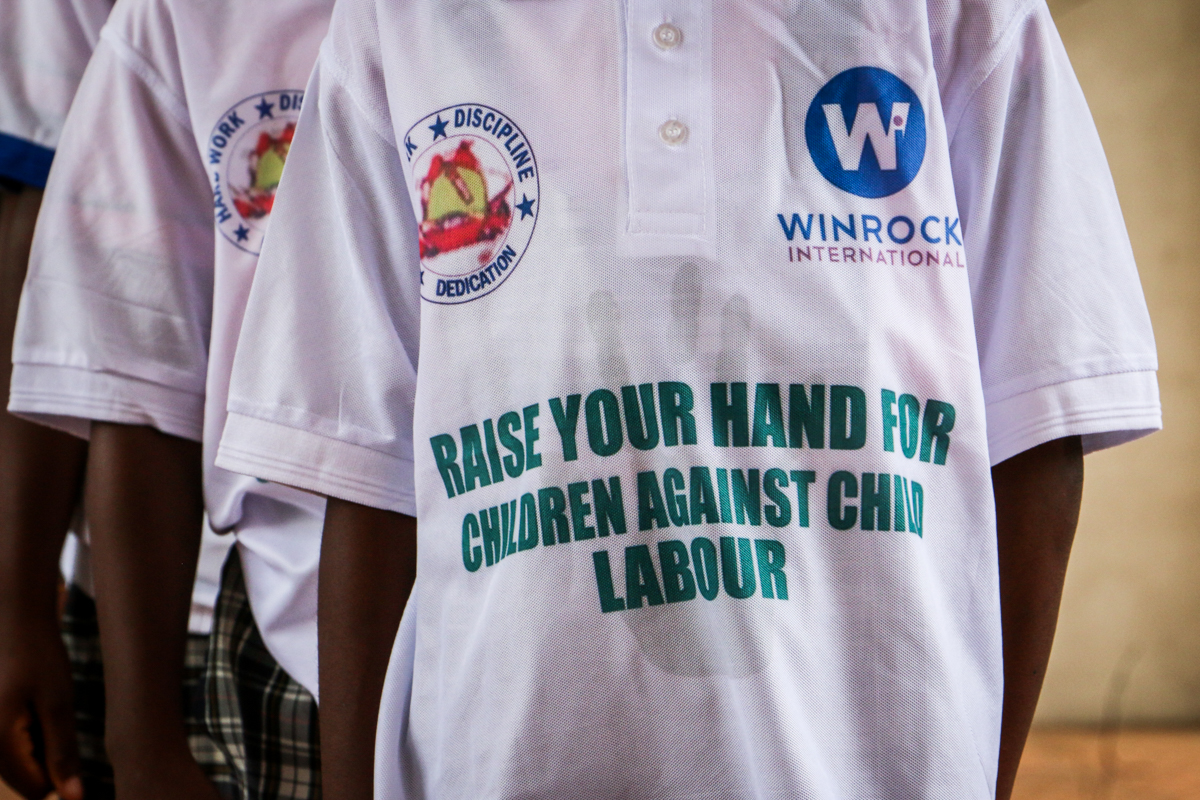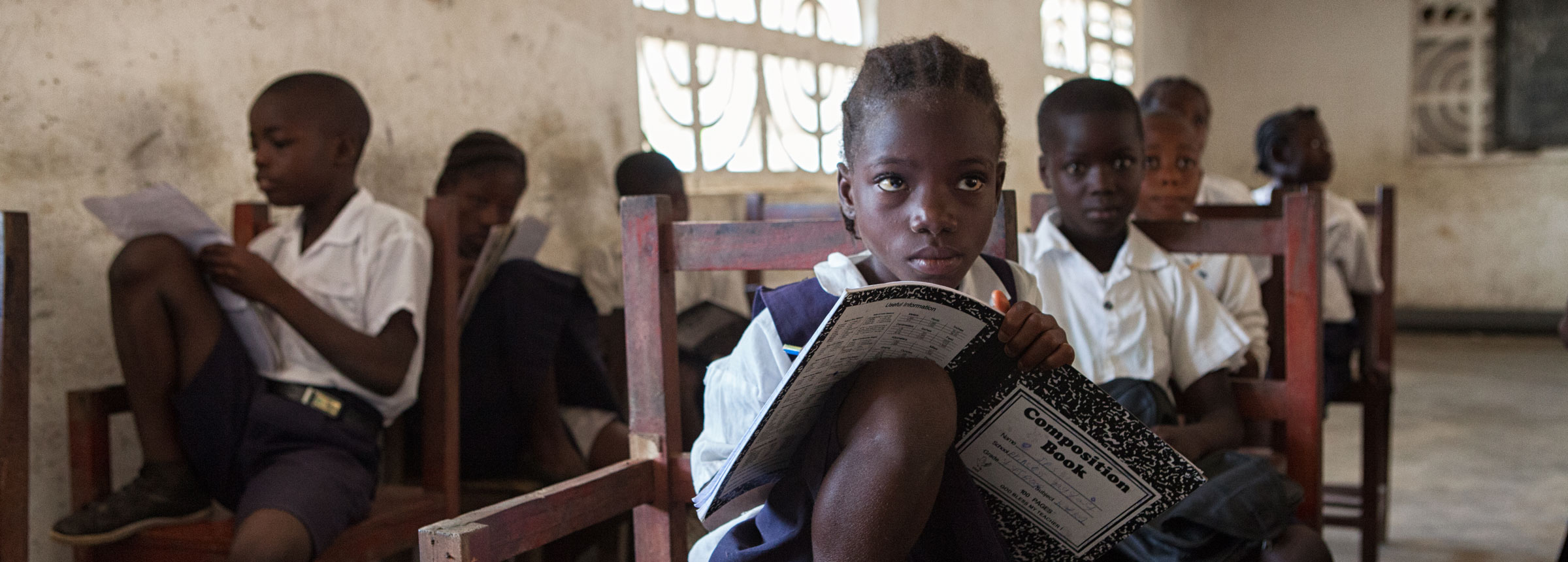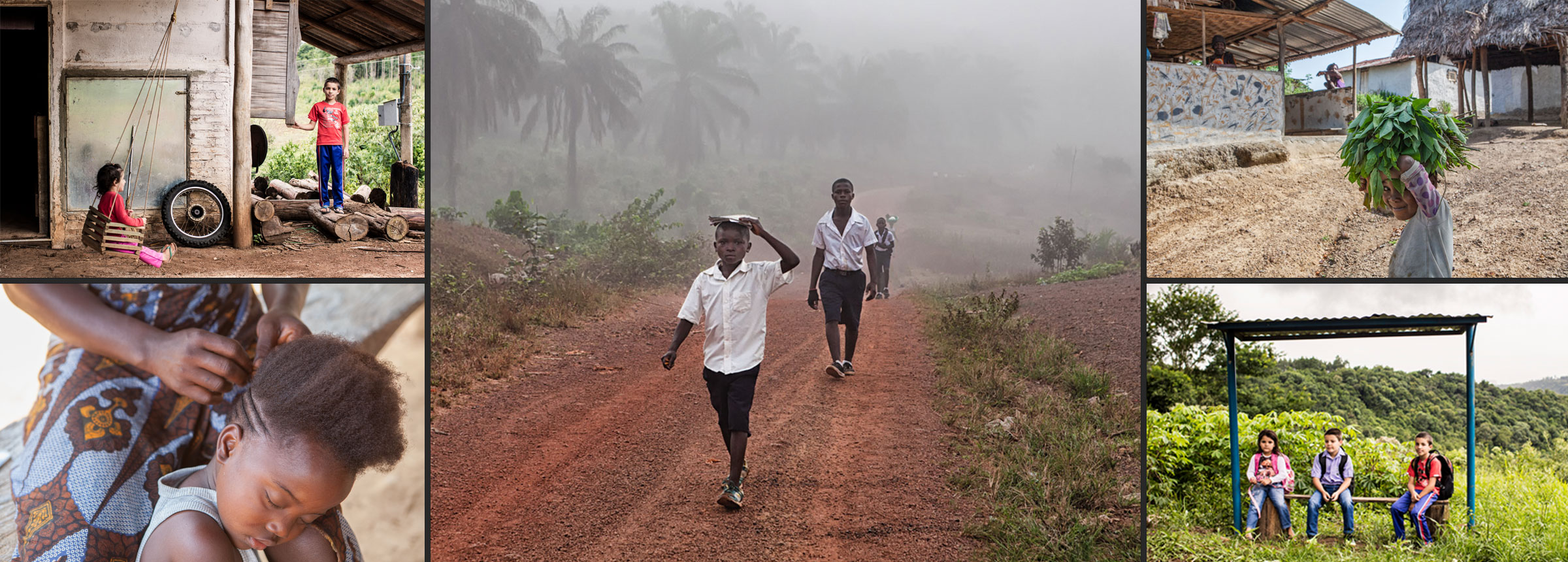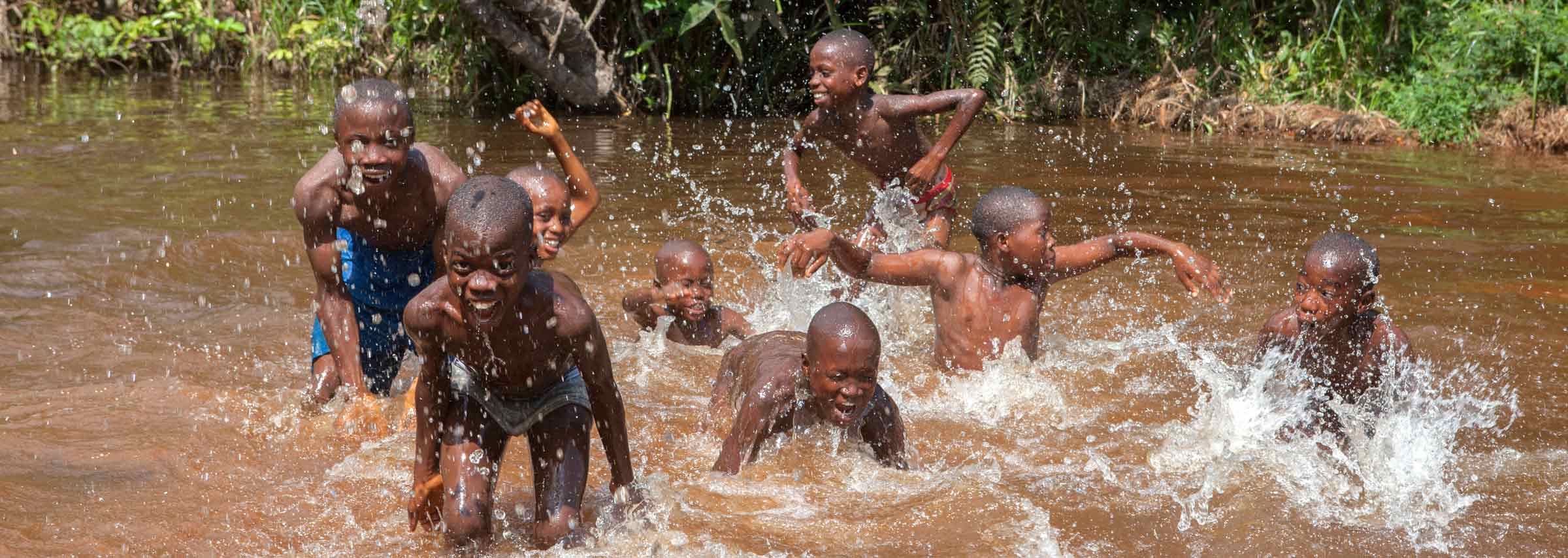
Liberia approves Hazardous and Light Work Lists, Ratifies ILO Convention 138
The government of Liberia has formally approved a Hazardous Work List and a Light Work List to regulate child work and labor and has ratified ILO Convention No. 138 on the minimum age to work. Minister of Labor Councillor Charles Gibson made the announcement at a Winrock-supported event in Monrovia on June 13 to commemorate World Day Against Child Labor, where he officially signed and sealed the two Lists.
“We have for the first time as a nation come up with a list of what a child may do in terms of work and what a child should not do,” Cllr. Gibson said. He also indicated that a new child labor law is currently under development.
Approval of the Hazardous and Light Work Lists and ratifying ILO convention No. 138 are major successes for addressing child labor in the country. “Strong legal frameworks – including regulations such as Hazardous and Light Work Lists – are essential to addressing child labor, particularly the worst forms of child labor, which includes hazardous work,” explained ATLAS Project Director Chris Wooley. “They provide governments and law enforcement the clarity and authority to act and help citizens to understand what types of work are acceptable or not for children. Winrock congratulates the government of Liberia on the approval of these landmark documents.”
These successes are the culmination of years of work, in partnership with the Liberian government, by child welfare advocates supported by Winrock and partner Lawyers Without Borders (LWOB) across multiple projects funded by the U.S. Department of Labor (USDOL).
In 2017, representatives from the Ministry of Labor, other government agencies, nongovernmental organizations, and other stakeholders in Liberia formed a Legal Reform Committee (LRC) to review, assess, and improve laws on child labor, which Winrock and LWOB have supported through training, technical assistance and expert input. The LRC first drafted Hazardous and Light Work Lists in 2018 and has been engaged in advocacy and outreach to obtain formal approval of the lists.
Through the USDOL-funded Attaining Lasting Change For Better Enforcement Of Labor And Criminal Law To Address Child Labor, Forced Labor And Human Trafficking (ATLAS) project, Winrock is also supporting the Ministry of Labor in drafting the new child labor law and previously contributed to Liberia’s new human trafficking law passed in 2021.

“We started at the national level. We had a series of consultations with workers associations and employers’ associations and then civil society movements and the Ministry of Labor. From there we did regional consultations on the lists, and then we came back to validate the lists,” explained Patience Heah, National Coordinator of the National Commission on Child Labor of the Ministry of Labor. “Winrock has been very instrumental in that process.”
An estimated 38,000 children in Liberia engage in hazardous work, and the Hazardous Work List specific type of hazardous work that no child under 18 may undertake. Meanwhile, the Light Work List details appropriate work for children ages 13 and 14 while Ratification of ILO Convention No 138 officially commits Liberia to establish a minimum age for work and national policies to eliminate child labor, which the country already possesses.
Funded by USDOL, Winrock International has supported Liberian efforts to address child labor since 2012, first under the Actions to Reduce Child Labor (ARCH) project, followed by the Country-Level Engagement and Assistance to Reduce Child Labor (CLEAR) II project, and now ATLAS. This current project seeks to strengthen the capacity of governments to address child labor, forced labor, and human trafficking.
Winrock thanks and acknowledges the Liberian Ministry of Labor and the government of Liberia for their leadership and initiative to tackle child labor in the country and the U.S. Department of Labor for its continued support.
Funding is provided by the United States Department of Labor under cooperative agreement number IL‐32821-18-75-K. 100% of the total costs of the project or program are financed with USG federal funds, for a total of 8.8 million dollars. This material does not necessarily reflect the views or policies of the United States Department of Labor, nor does mention of trade names, commercial products, or organizations imply endorsement by the United States Government.
Related Projects

Attaining Lasting Change for Better Enforcement of Labor and Criminal Law to Address Child Labor, Forced Labor and Human Trafficking (ATLAS)
The ATLAS project is a global initiative that has worked in four countries across Latin America, Africa, and Asia to strengthen enforcement of labor and criminal law to address child labor, forced labor and human trafficking. ATLAS works collaboratively with host governments to bolster the legal and criminal frameworks surrounding these issues, improve the enforcement…
CLEAR II
Heightened awareness of the many ills caused by child labor has led to a global decrease in its incidence. Nevertheless, estimates are that 168 million children worldwide are still engaged in child labor. This program develops the capacity of interested governments to create and implement policies that result in a meaningful reduction of child labor.
